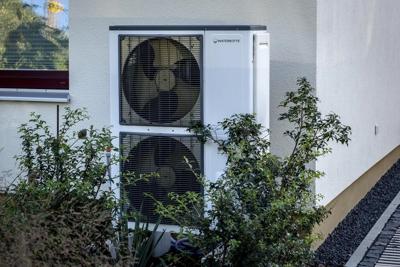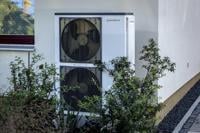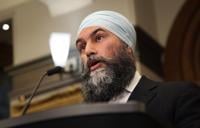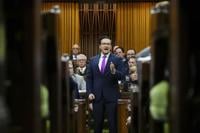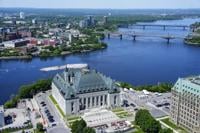OTTAWA - The three provinces most dependent on heating oil account for almost nine in 10 of the households that have applied for a federal grant to replace an oil furnace with an electric heat pump.
But Ottawa's move last fall to make the program even more appealing on the East Coast doesn't appear to have caused an immediate spike in interest.
Data provided by Natural Resources Canada show 12,572 applications were received for the oil to heat pump program since it launched on March 31, 2023, and almost 11,200 of those were in Prince Edward Island, Newfoundland and Labrador and Nova Scotia.
P.E.I. alone accounts for more than half the applications, and the program's popularity there is evident. Canada's smallest province is the most reliant on heating oil, with more than 52 per cent of households using oil for all or some of their heating needs as of 2020.
Almost one in five of those households applied for a heat pump grant between March 31, 2023, and Jan. 8, 2024.
The interest showed no sudden uptick after the federal government moved to increase the maximum grant from $10,000 to $15,000 in the fall.
In the first seven months of the program, before the grants increased, about 1,400 applications were received each month. In the two months after the announcement, that fell to fewer than 1,200 per month.
A spokeswoman for Natural Resources Minister Jonathan Wilkinson said the increase was announced but has not yet taken effect in either Prince Edward Island or Nova Scotia. Carolyn Svonkin said the increase only took effect in Newfoundland just before Christmas.
Svonkin said heat pumps are rising in popularity around the world, including in Canada. She said more than 20 per cent of households in New Brunswick, Nova Scotia and P.E.I. now have them installed.
While the heat pump grants are available in all provinces, only Newfoundland, Nova Scotia and P.E.I. are currently getting the grant increase, because they're also the only ones with a provincial partnership to deliver it. Ottawa is negotiating with other provinces to sign similar deals.
Prime Minister Justin Trudeau set off a political uproar when he announced that the government was temporarily removing carbon pricing from heating oil and increasing heat pump grants in provinces that agreed to partner on the program.
The government insists it made the move because heating oil is already much more expensive than natural gas, and people who use it need more time and financial aid to remove their oil furnaces and install electric heat pumps instead.
"To be blunt, the price signal on heating oil is not resulting in enough people being able to switch to electric heat pumps, despite people wanting to move to these cleaner home heating options," Trudeau said on Oct. 26.
Heating oil is about 40 per cent more carbon-intensive than natural gas, and at current prices, it costs three to four times as much to heat a similarly sized home with it.
There has been very little interest in the heat pump program outside of those three Atlantic provinces.
More than 730,000 households in Ontario and Quebec used heating oil in 2020, but fewer than 900 applications for heat pumps have been filed from those two provinces. About 12 per cent of Quebec households used furnace oil in 2020, and five per cent in Ontario.
In Western Canada, heating oil is extremely limited and interest in heat pumps is virtually non-existent.
Fewer than 35,000 households in the three prairie provinces use furnace oil — about one per cent of all households — and a total of 11 applications under the heat program were received from Alberta, Saskatchewan and Manitoba combined.
In British Columbia, 84,000 households, or four per cent, use furnace oil, and 327 have applied for a heat pump grant.
The heat pump grants are available on an income-tested basis, with households only eligible if their total income is below the median income for their household size in their particular province.
Trudeau's decision to exempt furnace oil from carbon pricing for three years was met with fierce criticism from premiers in provinces where natural gas is more commonly used.
Premiers in Alberta, Saskatchewan, Manitoba and Ontario have all demanded at least a similar exemption for natural gas, though most of them also want the carbon price for households eliminated altogether.
Conservative Leader Pierre Poilievre jumped on the Liberals' move as proof that carbon pricing isn't working as an incentive. He has continued to press hard on a promise to eliminate carbon pricing if he is elected prime minister.
The parliamentary budget officer released an analysis of the heat pump program on Thursday that estimated the grant program will cost the federal government $797 million over five years. Ottawa budgeted $750 million for the program over the first four years.
Budget officer Yves Giroux's report also said that up to 244,000 households are likely eligible for the grants, and while he didn't anticipate all would take advantage, it would cost $2.7 billion to fund grants for all of them.
As of Jan. 8, about five per cent of those eligible households had already applied. As of that date, 37 per cent of the households that have applied have seen a heat pump already installed.
This report by ºÚÁϳԹÏÍø was first published Jan. 18, 2024.

